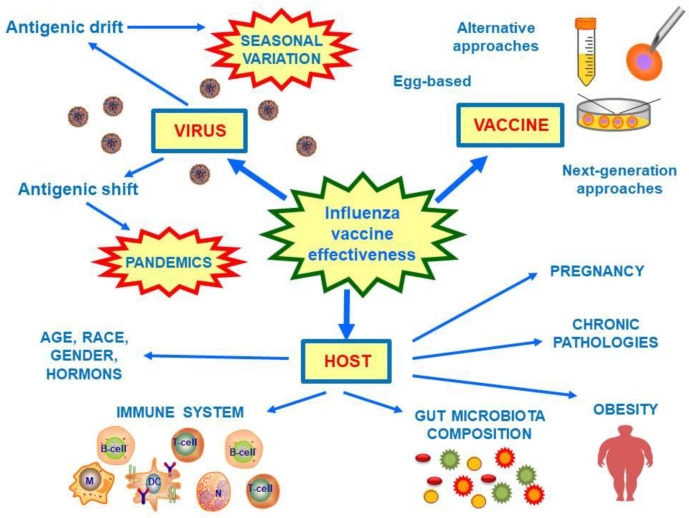Figure 1.
Factors involved in the influenza vaccine effectiveness. Influenza vaccine effectiveness is modified by virus mutation tendency, vaccine manufacture process, and host factors. Influenza viruses are characterized by seasonal antigenic mutations (antigenic drift), and they may undergo to periodical antigenic shift responsible for pandemics. To date, there several influenza vaccine types; the most common used are egg-based vaccine, but alternative approaches are available and next-generation ones are developing. Finally, several host factors may further influence vaccine effectiveness, such as age, race, gender, hormones, pregnancy, obesity, chronic pathologies, and gut microbiota composition. Abbreviations: M, macrophage; DC, dendritic cell; N, neutrophil.

